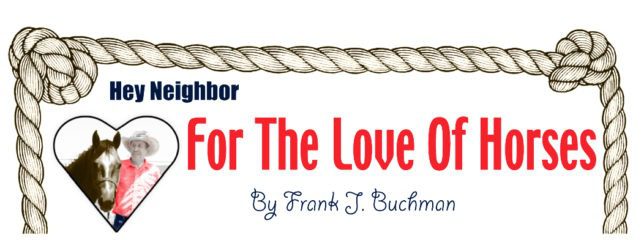With record prices being reported for top performance horses, owners are the most conscious ever about insuring their investment
“Many factors must be considered when purchasing equine insurance to get the right coverage at affordable prices,” said Karen McCuistion.

“Foremost it is important to find an agent who knows the horse business,” emphasized the American Quarter Horse Association official.
“Partner with an agent with expertise in your horse’s discipline,” advised McCuistion from her Amarillo, Texas, office. “Ask around for recommendations for from someone who has done business with that agent before.”
Insurance is an important part of any business or individual’s financial foundation. “Many horse owners learn the hard way that opting against insurance can be costly,” McCuistion said.
Horse accidents can be expensive. “Buying insurance is one way to help protect your financial investment,” McCuistion said. “Horses can be become one our biggest assets, so it’s important to be covered correctly.”
Most people understand the necessity of carrying homeowner’s insurance. “That same logic should apply to horse insurance,” McCuistion explained. “Upon buying a horse insurance policy, the financial risk associated with losing that horse is transferred to the insurance company.”
It can be difficult to put a value on a horse. “When determining the value of a horse, the ultimate decision is made by the insurance underwriter,” McCuistion said. “The agent is a good resource who will be familiar enough with the market to help determine the value.”
Many factors are taken into account when assessing a horse’s value. For weanlings being insured by their breeders, generally the stud fee is used as a starting point. As the horse enters training and makes its first start, its value will change.
“A good insurance agent will adjust those values as time goes on,” McCuistion continued. “So an owner isn’t paying extra premiums on a horse whose value has dropped or underinsured on a new champion.”
When compared to veterinary bills and training costs, horse insurance premiums can be among the lowest in a budget. “Still, there are times that the budget needs a little help,” McCuistion said. “Owners should work with their agent to secure the most coverage they can afford within their limits.”
When insuring a large number of horses or a handful of high-dollar horses, there can be benefit from deductible policies. “Agreeing to pay a deductible increases the amount of risk an owner is willing to take. However, the premium is lowered in the process,” McCuistion said. “Deductibles are sometimes referred to as self-retention. The more an owner retains risk, the insurance becomes cheaper.”
Most carriers require a minimum policy value to write a deductible policy for horses. “Still, if insuring horses for a large amount, it is worth checking into advantages of a deductible policy,” McCuistion said.
Another option for insuring large numbers of horses is specified peril policies, which are less expensive than full mortality policies. “Typically, specified peril policies cover things such as fire, lightning, transportation, theft, acts of God and accidents,” McCuistion said.
It’s important to check for discounts when it comes to equine insurance by combining farm auto and equine mortality with one company. “Even though you may not be eligible for a multiple-horse discount, you could be eligible for threshold discounts,” McCuistion said.
